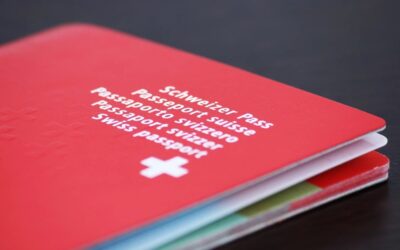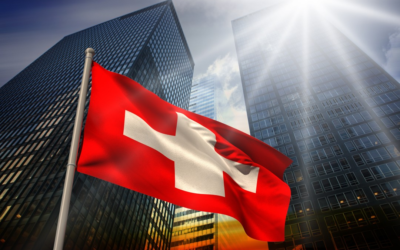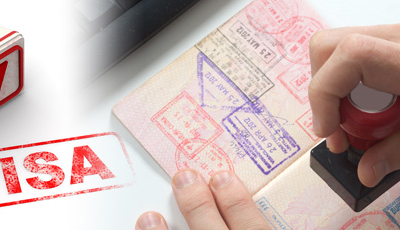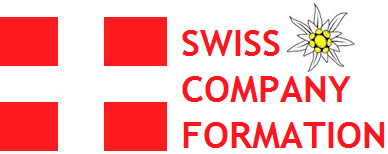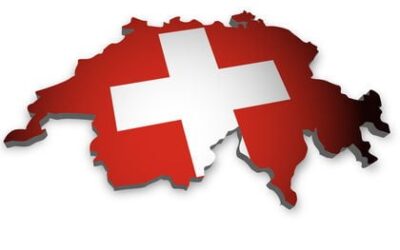Would you talk with someone in our company regarding any issues? Just drop us a line!
Table of Contents
- 1 Introduction
- 2 Types of Swiss Residence Permits
- 3 How to Obtain Swiss Residence Permits: Step-by-step Guide
- 4 Swiss Residence Permit by Investment
- 5 Swiss Citizenship: Ordinary vs Simplified Naturalization
- 6 Swiss Residence Permit Requirements (UK/EU Citizens)
- 7 Main Benefits of Swiss Residence Permit
- 8 Common Mistakes to Avoid When Applying for Swiss Residence Permit
- 9 Conclusion
- 10 FAQs
Introduction
Switzerland is globally recognized for its exceptional quality of life, political stability, and economic prosperity, making it a highly desirable destination for residence seekers. Obtaining a Swiss residence permit opens numerous doors, providing access to first-class healthcare, world-renowned educational institutions, lucrative employment opportunities, and unparalleled security. However, fulfilling the Swiss residence requirements involves adhering to strict financial and legal criteria. Applicants must ensure they meet all Swiss residence requirements, including sufficient financial resources and valid health insurance coverage.
For more insights on the benefits of living in Switzerland, refer to the official Swiss Federal Statistical Office: https://www.bfs.admin.ch/bfs/en/home.html
Whether you are from the UK, an EU country, or elsewhere, understanding the specifics of Swiss residence permits is crucial for a smooth integration and successful application. This guide details the essential information, benefits, and step-by-step procedures for securing a Swiss residence permit, specifically tailored to the needs and expectations of UK and EU citizens.
For those seeking permanent residency in Switzerland, establishing financial stability and proving language proficiency are crucial steps.
Additionally, transitioning from a temporary permit to Swiss permanent residency requires compliance with the established residency criteria.
For those aiming to obtain Swiss residence, demonstrating financial stability and securing suitable accommodation are essential steps. Before proceeding to obtain Swiss residence, applicants should consult the local cantonal migration office to verify documentation.
Types of Swiss Residence Permits
Understanding the core Swiss residency rules is vital for applicants to ensure compliance and avoid potential legal issues. A detailed overview of the Swiss residency types explained can help applicants identify the most suitable permit for their specific needs. Each permit type offers distinct benefits and conditions, further emphasizing the importance of understanding the Swiss residency types explained.
Switzerland offers several residence permit categories, each clearly distinguished by Latin letters, indicating their unique conditions and benefits:
Permit Type | Duration | Employment Rights | Renewal Terms | Description |
| Permit L | Up to 1 year | Restricted | Renewable | Ideal for short-term stays, usually linked to specific employment contracts or temporary assignments. |
| Permit B | 1 year or more | Allowed | Renewable | Suitable for long-term residents, offering broad employment and living rights. Popular among expats. |
| Permit C | Indefinite | Allowed | Permanent | Grants permanent residency after 5 or 10 years, depending on nationality. Full integration into Swiss society. |
| Permit Ci | Contract-based | Restricted | Contract-based | Issued to family members of international civil servants, providing specific employment rights based on contractual terms. |
| Permit N | Variable | Possible | Case-specific | Designed for refugees, allowing residency and employment rights under certain conditions. |
| Permit S | Variable | Possible | Case-specific | For individuals requiring protection, offering temporary residency and potential employment opportunities. |
| Permit F | 12 months | Restricted | Renewable | Issued to temporarily admitted individuals, often subject to periodic reassessment of residency status. |
Creating a Swiss company provides additional pathways for securing various residence permits, enabling more flexibility in achieving your residence goals. For those aiming to establish permanent residency in Switzerland, business investment can serve as a viable route to long-term stability.
For the latest guidelines and updates on Swiss residence permits, consult the Swiss State Secretariat for Migration: https://www.sem.admin.ch/sem/en/home/themen/aufenthalt.html
How to Obtain Swiss Residence Permits: Step-by-step Guide
Obtaining a Swiss residence permit requires a well-structured approach. The process involves several key steps to ensure compliance with local regulations:
- Select the Appropriate Permit Type: Determine whether you qualify for a Permit L, B, C, or other specific permit types based on your purpose of stay.
- Prepare Required Documentation: This includes passport copies, proof of financial stability, proof of accommodation, health insurance, and a clear criminal record.
- Submit Application: Applications are submitted to the local cantonal migration office. The processing time may vary depending on the permit type.
- Attend Interviews or Provide Additional Documentation: Some permit types may require personal interviews or additional documentation.
- Receive Permit and Register Locally: Upon approval, the residence permit is issued, and the holder must register with the local authorities.
Opening a Swiss bank account is often recommended to demonstrate financial stability during the application process. Moreover, Swiss residency rules require applicants to maintain consistent financial resources throughout their stay.
For potential investors seeking residence through economic contribution, detailed information is available at Switzerland Global Enterprise: https://www.s-ge.com/en/invest
Swiss Residence Permit by Investment
One of the fastest ways to obtain a residence permit in Switzerland is through investment.
A comprehensive overview of Swiss immigration policies and procedures can be found on the Swiss Authorities Online portal: https://www.ch.ch/en/
This route is primarily designed for high-net-worth individuals willing to contribute to the Swiss economy:
Canton | Minimum Investment (CHF) | Investment Type | Residency Benefits |
| Zurich | 1,000,000 | Business investment | Path to B permit |
| Geneva | 500,000 | Real estate or business | Work and residency |
| Zug | 1,000,000 | Business setup | Path to C permit |
| Ticino | 750,000 | Economic projects | Work and residency |
Establishing a Swiss GmbH can expedite the investment route, offering both residence and business opportunities in one process. Obtaining Swiss residence for UK citizens has become more structured post-Brexit, emphasizing financial self-sufficiency and integration

Swiss Citizenship: Ordinary vs Simplified Naturalization
Switzerland offers two primary pathways to citizenship: ordinary and simplified naturalization. Both processes have distinct criteria and benefits.
Criteria | Ordinary Naturalization | Simplified Naturalization |
| Residency Requirement | 10 years | 5 years |
| Language Requirement | Mandatory | Mandatory |
| Integration Assessment | Comprehensive | Less stringent |
| Marriage to Swiss Citizen | Not required | Required |
For spouses of Swiss citizens, the simplified process significantly reduces the residency requirement and eases the language assessment. Applicants must also be aware of the specific Switzerland citizenship requirements, which include residency duration, language proficiency, and integration criteria. EU citizens seeking Swiss residency often benefit from preferential treatment, especially when applying for work-related permits.
Swiss Residence Permit Requirements (UK/EU Citizens)
To obtain a residence permit in Switzerland, UK and EU citizens must meet specific criteria, including:
- Housing Agreement: Proof of official accommodation, either rented or owned, is mandatory.
- Language Proficiency: Applicants must demonstrate basic knowledge of one of the national languages (German, French, Italian).
- Financial Stability: Evidence of sufficient financial resources to sustain oneself without social assistance.
- Health Insurance: Valid health insurance coverage is required for all applicants.
Certain specialized activities in Switzerland might require obtaining a Swiss SECO license.
Failure to comply with these requirements may result in application rejection or permit revocation. For those unfamiliar with the national languages, obtaining a certified language certificate is a critical part of the Swiss language requirements. In particular, Swiss language requirements often include proficiency in German, French, or Italian, depending on the canton.
Main Benefits of Swiss Residence Permit
Obtaining a Swiss residence permit offers significant benefits that extend beyond the right to live and work in Switzerland. Key advantages include:
- Visa-Free Travel: Permit holders can travel freely across the Schengen Area without additional visas.
- Access to Swiss Banking: Establishing a Swiss bank account provides access to one of the most secure banking systems worldwide.
- Education and Healthcare: Residents can access top-tier educational institutions and world-class healthcare facilities.
- Employment Opportunities: High salaries and strong labor protections attract skilled professionals to Switzerland.
- Path to Permanent Residency: Long-term permit holders can eventually qualify for permanent residency and Swiss citizenship.
Understanding Swiss taxes is essential to fully leverage the financial advantages offered by a Swiss residence permit. Swiss residence for UK citizens, specific considerations regarding work permits and residency duration apply.
Common Mistakes to Avoid When Applying for Swiss Residence Permit
Applying for a residence permit in Switzerland requires careful attention to detail. Common errors that applicants should avoid include:
- Incomplete Documentation: Submitting incomplete or outdated documents can result in application delays or rejections.
- Insufficient Financial Proof: Failing to demonstrate adequate financial resources may disqualify the applicant.
- Language Proficiency Issues: Neglecting to provide language certificates in one of the national languages can be grounds for refusal.
- Non-Compliance with Residency Requirements: Permit holders must adhere to residency regulations, such as spending a minimum of 183 days per year in Switzerland.
For faster business and residence establishment, entrepreneurs sometimes opt for Swiss shelf companies.
Maintaining the validity of a Swiss residence permit requires strict adherence to residency obligations, such as maintaining financial stability and meeting the minimum stay requirements annually. Moreover, the Swiss residence permit validity may be impacted if the holder fails to meet the minimum stay requirements or violates local regulations. Keeping up with the latest changes in Swiss immigration policy is crucial for applicants aiming to secure long-term residency
Conclusion
Securing a Swiss residence permit provides substantial advantages, from high living standards and stable employment opportunities to access to world-class healthcare and education. Among the top Switzerland residence benefits are access to advanced healthcare systems and lucrative employment opportunities.
The exceptional Switzerland living standards are a key factor in attracting investors, entrepreneurs, and skilled professionals to the country. Those pursuing Switzerland citizenship requirements must also demonstrate their integration into the local culture and community.
By thoroughly understanding the requirements and carefully preparing the necessary documentation, applicants can streamline the permit acquisition process and successfully integrate into Swiss society. Whether through investment, employment, or family reunification, the Swiss residence permit remains a gateway to one of the world’s most prosperous and secure countries.
For legal frameworks and citizenship application procedures, visit the Swiss Federal Office of Justice: https://www.bj.admin.ch/bj/en/home.html
FAQs
A Swiss residence permit is an official document that allows a foreign national to reside in Switzerland for a specified period. The permit can be categorized into several types, such as L (short-term), B (long-term), and C (permanent), depending on the duration and purpose of stay. Each type comes with its own rights and responsibilities, impacting work eligibility, travel, and access to social services.
Yes, EU permanent residents can work in Switzerland. They typically qualify for a B residence permit, which allows them to live and work in Switzerland for up to five years, with the possibility of extension. EU citizens enjoy more flexible access to the Swiss job market, making it easier to secure employment compared to non-EU citizens.
Yes, holders of a UK residence permit can travel to Switzerland. However, they may require a visa depending on the duration of their stay and the purpose of travel. It’s advisable to check the latest entry requirements and ensure all documentation is in order before planning your trip.
Yes, you can travel to the UK with a Swiss residence permit, but it does not guarantee entry. You will need to meet UK entry requirements, which may include obtaining a visa depending on your nationality and the purpose of your visit. Always check the latest regulations prior to travel.
The Swiss C residence permit is a long-term settlement permit granted to foreign nationals who have resided in Switzerland for a minimum of five or ten years. It allows holders to live indefinitely in Switzerland and does not require them to meet any conditions for renewal. This permit grants more extensive rights, including the ability to change jobs without restrictions.
To obtain a Swiss residence permit by investment, you must invest a substantial amount (usually starting from CHF 500,000) in a Swiss business or property and contribute to the local economy. This option is typically available for non-EU citizens and requires active participation in the investment process. Each canton may have its specific guidelines, so consulting local authorities is recommended.
Language requirements vary based on the type of residence permit. For certain permits, especially when applying for citizenship or a C permit, applicants must demonstrate proficiency in one of the national languages (German, French, or Italian). An official language certificate may be required to prove your language skills during the application process.
Switzerland offers several types of residence permits, including:
- Permit L: Short-term residence permit for stays of up to one year.
- Permit B: Long-term residence permit, typically valid for five years.
- Permit C: Permanent residence permit granted after several years of residence.
- Permit Ci: Residence permit for family members of foreign diplomats. Each type has specific eligibility criteria and conditions for renewal.
To renew your Swiss residence permit B, you must submit a renewal application to the relevant cantonal migration office before the current permit expires. You will need to provide documents such as proof of employment, valid health insurance, and compliance with residency conditions. It’s crucial to apply in advance to avoid any lapse in your residency status.
The Swiss residence permit number format consists of a unique identification number assigned to each permit holder. This number is essential for official documentation, legal transactions, and accessing public services. It is typically printed on the front side of the residence permit card, along with other personal information such as name, nationality, and type of permit.
Would you talk with someone in our company regarding any issues? Just drop us a line!



















